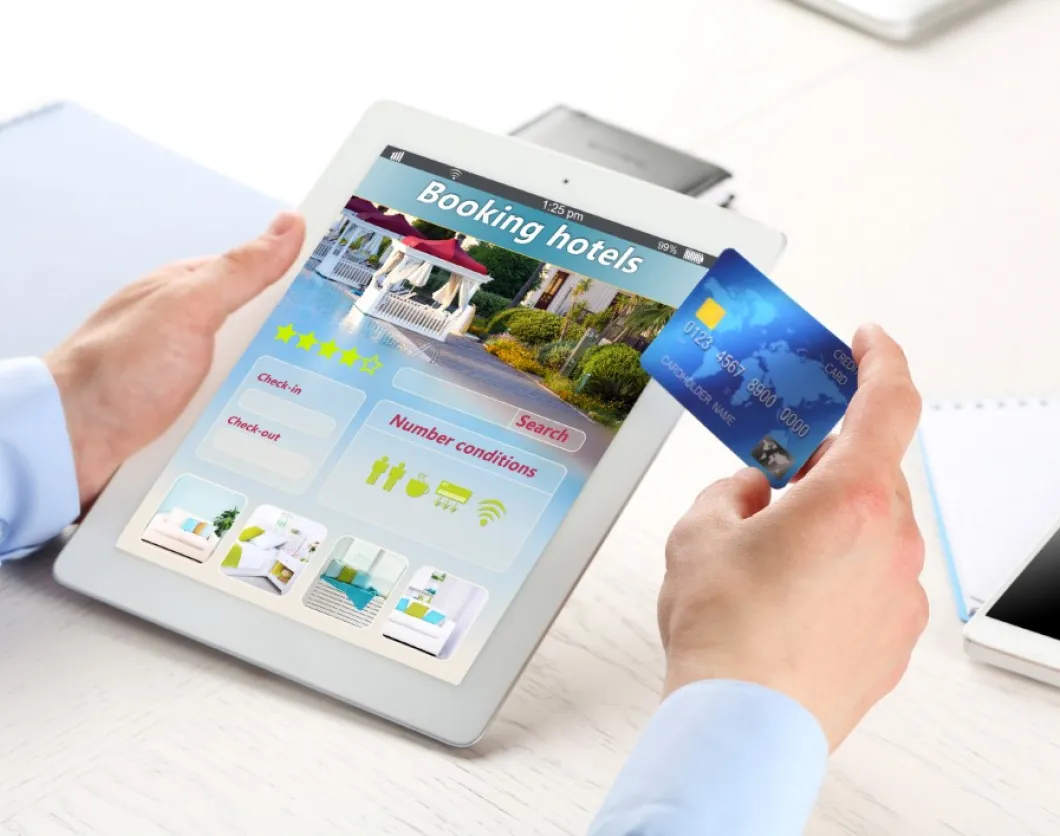
has brought this topic into focus. Payment processing is at the heart of the digital guest experience. It ranges from the first booking options to the billing at the check-out. Today's travelers are sensitive to credit card security and expect hotels to handle guest data in accordance with legal requirements and consider "best practices" when handling the payment data.
Mobile Payment Trends
92 % of 7,000 North American and European respondents to a recent survey want "fast, smooth payment processing" that is "as reliable and secure as possible" when using a company's digital platform. Since online payments are subject to a greater risk of fraud and uncertainty due to possible chargebacks, many guests may still choose to pay on-site at a credit card terminal.
For hoteliers, acceptance of the major credit card brands and local debit cards is, therefore, a must. However, the trend is moving towards mobile payments, with the Chinese platforms AliPay and WeChat leading the way in Asia, followed by ApplePay and PayPal. Mobile payment is also gaining traction in Europe, especially with a younger generation of guests.
Unfortunately, hotels cannot offer all available payment methods. Instead, they should rather identify the methods relevant to the target customer and ask themselves whether their payment method creates enough trust and offers the security that their guests expect from them.
Six questions hotels should ask themselves when choosing the payment methods:
- How old are our guests? With a mainly younger clientele, the hotel should focus on alternative payment methods such as PayPal, ApplePay and other mobile options.
- What are the typical transaction amounts? If the hotel frequently has bookings for several rooms or stays over several days and this in a location with high demand, then the hotelier should think about online banking payments and also offer options for the bill and hire purchase. This is especially true for houses with long-term stays.
- Where do our guests come from? If the hotel has a significant percentage of travelers from a certain region (for example Asia), it is advisable to check whether the hotel can offer their preferred online payment methods such as AliPay or WePay.
- Will the hotel receive the follow-up payments? Hotels should make sure that the payment methods allow for recurring payments if they want to allow the guest to save their payment method to pay for additional services during their stay or for monthly instalments.
- How secure is the payment method the hotel offers? With increasing acceptance, consumers expect that an online purchase is confirmed via the banking app or via a transaction code sent by SMS. This shows them that payments are processed according to the applicable regulations (for example, via 3D Secure 2) and thus creates trust.
- How transparent and clear are the transaction process and transaction details? Payment terms should be easy to understand and clearly visible to guests during the payment process, and all sales channels should be considered accordingly. Today, many banking apps or e-wallets notify the consumer every time a transaction is processed, enabling him or her to react quickly and, in the event of suspicious transactions, to log everything in case of an emergency. The hotel’s payment processes should strictly adhere to these rules and options.
Many of these suggestions may seem obvious. But the important thing is to leave as much control as possible to the guests – they want to remain the masters of their payment methods. This also saves the hoteliers a considerable amount of time and effort that would otherwise flow into manual standard processes (SOPs). Thanks to a high degree of automation in payment processing, entrepreneurs always have a clear overview of the payment status and at the same time have the capacity to respond to special requests from guests.
Four "must-haves" for payment processing:
- Different payment methods: Choose a payment processing technology that allows a wide range of different payment methods to be offered to guests online and, where appropriate, to local cardholders. Your technology provider should support emerging payment methods. Responding to new mobile payment trends early will give you a competitive advantage.
- A toolbox for payments: A payment toolbox must be flexible enough to easily integrate custom and standard apps such as booking machines, kiosks, etc. into your processes. To maintain full control, all payments must be seamlessly transferred to the PMS, where the front desk team centrally monitors and manages them.
- Flexible fraud detection: Manually configured rules for handling specific credit cards or IP addresses using whitelists or blacklists are the first step. However, a modern fraud detection system should also automatically analyze data and automatically reject credit cards based on the identified risk patterns.
- Security and compliance: Since the new regulatory guideline PSD2 introduced in September 2019, it is known that even established banks and payment service providers may have difficulties implementing a new regulation in time. A hotelier should adhere to best practices and legal requirements in the form of good documentation and support of the technology provider for payment methods.
Hotels that offer online guest travel, want to digitalize and automate their processes and make them more efficient, should invest time to evaluate their strategy for handling guest payments. However, choosing a solution and implementing it should be easy.
There is no single solution that works for all businesses. But rather than avoiding the issue, it should be seen as an opportunity to further enhance the guest experience and differentiate one’s hotel from the competition.









